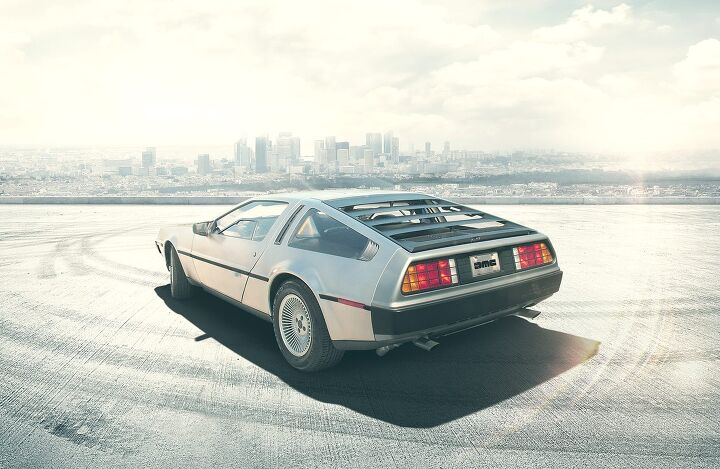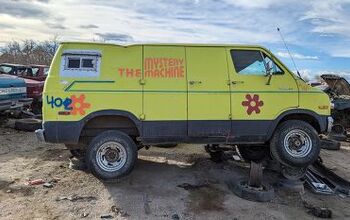Ahead to the Past: DeLorean Production Could Start Next Year

DeLorean’s plan to produce updated versions of its only model has been delayed due to the National Highway Traffic Safety Administration (NHTSA) dragging its feet on the Low Volume Motor Vehicle Manufacturers Act. The car was supposed to be here as a turnkey classic years ago, but the regulator failed to act after the 2016 election. The NHTSA doesn’t currently have an administrator, and the acting administrator would not sign off on the regulations. Vintage automobiles probably aren’t very important to an agency that’s also trying to manage autonomous and electric vehicles.
However, the Low Volume Motor Vehicle Manufacturers Act was supposed to be the keystone in allowing DeLorean and the like to assemble new cars. Noticing three years had passed with no progress, the Specialty Equipment Market Association (SEMA) decided to sue the NHTSA last fall. James Espey, vice president of DeLorean Motor Company, has taken this as a good sign — and he believes the company could start production in 2021.
“Realistically, I wouldn’t expect to see production begin until at the earliest this time next year.” Espey recently explained to CNET, adding that the summer or fall of 2021 might be when we’ll see orders filled.
That timeline, however, is dependent upon regulators being swift and the Office of Management and Budget not taking more than six months to review the final document.
The NHTSA will first provide 30 days for public comments on its proposed rules, which SEMA has already confirmed it will contribute to in order to urge the most favorable regulations. Espey praised the group for working so hard to get modern classics out of the factory. “SEMA is not asking the court to dismiss the lawsuit until NHTSA carries through,” Espey said in an earlier interview with Hagerty.
From Hagerty:
DMC, based in Humble, Texas, was started by Stephen Wynne in 1995 to service and restore DeLoreans. Born in Liverpool, England and a mechanic by trade, Wynne eventually acquired the DeLorean trademarks and vast stocks of parts left over from the factory and dealers. Using those parts, DMC offers refurbished and upgraded DeLoreans from its four locations in Texas, Florida, California, and Illinois.
“It’s crazy how many DeLoreans are used as daily drivers in California,” says Espey, who has been with DMC for 20 years.
The company has about 3.5 million parts in stock and Espey says an inventory survey shows 96.7-percent parts availability. That means DMC already has 96.7 percent of what’s needed to build complete cars. The missing parts don’t much affect DMC’s restoration business but would need to be procured to build whole cars.
Cars will be an amalgamation of the old DMC-12 parts and new modern equipment. The model will receive features it never had before (cruise control, updated center console, superior climate controls, etc) as well as a new motor. The old 130-hp V6 will be replaced with a unit producing an estimated 350 hp, requiring wheel and brake upgrades.
Cars produced under the new regulations are required to use an engine already certified with the EPA and CARB, but DeLorean doesn’t see that as a problem. While the motor it originally chose is due to be phased out in a couple of years, the company says it should have no issue sourcing something else.
The Low Volume Manufacturer law only allows a company to make 325 cars per year, but Espey says that the initial run of DeLoreans will be leaner than that. He’s not anticipating being able to build more than a couple cars every week, but expects demand to be high. “The DeLorean appeals to ages eight to 80, thanks to those movies,” Espey said. “Someplace in the world right now, one of those movies is on. Somebody’s seeing it for the first time. They’ll go to the internet and look up DeLorean and see it’s a real car they can buy, not a movie prop.”
The company previously suggested some versions of the car could exceed six figures; since then, it’s been cagey about releasing detailed pricing information. Considering the amount of modern amenities planned, the original $25,000 MSRP will seem like a bargain.
[Images: DMC]

A staunch consumer advocate tracking industry trends and regulation. Before joining TTAC, Matt spent a decade working for marketing and research firms based in NYC. Clients included several of the world’s largest automakers, global tire brands, and aftermarket part suppliers. Dissatisfied with the corporate world and resentful of having to wear suits everyday, he pivoted to writing about cars. Since then, that man has become an ardent supporter of the right-to-repair movement, been interviewed on the auto industry by national radio broadcasts, driven more rental cars than anyone ever should, participated in amateur rallying events, and received the requisite minimum training as sanctioned by the SCCA. Handy with a wrench, Matt grew up surrounded by Detroit auto workers and managed to get a pizza delivery job before he was legally eligible. He later found himself driving box trucks through Manhattan, guaranteeing future sympathy for actual truckers. He continues to conduct research pertaining to the automotive sector as an independent contractor and has since moved back to his native Michigan, closer to where the cars are born. A contrarian, Matt claims to prefer understeer — stating that front and all-wheel drive vehicles cater best to his driving style.
More by Matt Posky
Latest Car Reviews
Read moreLatest Product Reviews
Read moreRecent Comments
- Dave Holzman You're right about that!
- EBFlex It will have exactly zero effect
- THX1136 What happened to the other companies that were going to build charging stations? Maybe I'm not remembering clearly OR maybe the money the government gave them hasn't been applied to building some at this point. Sincere question/no snark.
- VoGhost ChatGPT, Review the following article from Automotive News: and create an 800 word essay summarizing the content. Then re-write the essay from the perspective of an ExxonMobil public relations executive looking to encourage the use of petroleum. Ensure the essay has biases that reinforce the views of my audience of elderly white Trump-loving Americans with minimal education. Then write a headline for the essay that will anger this audience and encourage them to read the article and add their own thoughts in the comments. Then use the publish routine to publish the essay under “news blog” using Matt Posky listing the author to completely subvert the purpose of The Truth About Cars.
- VoGhost Your source is a Posky editorial? Yikes.





































Comments
Join the conversation
I too am confused...I thought it was coming back as an electric car. It's not very "car of the future" if it sounds like a glugging '72 Chevelle.
You can actually Rent a Delorean Time Machine for party's and events via http://deloreanrental.com What a time to be alive!